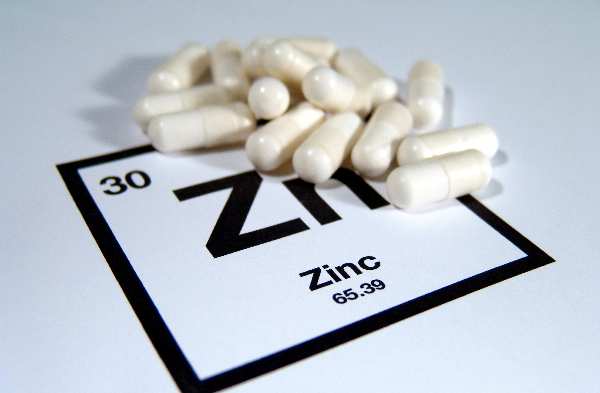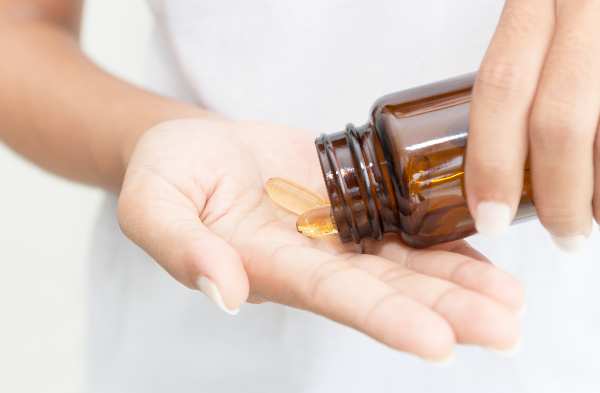What do I need zinc for?

Zinc is often overlooked compared to more popular mineral supplements such as magnesium or iron and the results are definitely making themselves known. The World Health Organisation (WHO) has estimated that around 31% of the global population is suffering from some form of zinc deficiency.1
Although severe zinc deficiencies are rare in more developed countries, even marginal zinc deficiencies can have an impact on your health and wellbeing. Zinc is needed to make over 300 enzymes and it is absolutely crucial when it comes to maintaining a healthy immune system – it helps protect your cell membrane and ensures that your immune system is capable of fighting off pathogens and viruses.
One of the key symptoms of low zinc levels is diarrhoea, which is believed to be connected to an impaired immune system. Zinc also plays an essential structural role in several hormone receptors and can contribute towards raised levels of histamine.
Although it is possible to get plenty of zinc from dietary sources, certain people may be more at risk of developing a zinc deficiency than others. Alcoholism, diabetes and rheumatoid arthritis can all affect how you absorb the nutrient while strict vegetarians and vegans are also believed to be vulnerable.
1http://www.who.int/publications/cra/chapters/volume1/0257-0280.pdf
What is the connection between zinc and acne?

Ok, so zinc is essential for keeping your immune system in tip-top condition but how does it affect your acne symptoms? Well, believe it or not, sufferers of acne tend to have low levels of zinc.
One study conducted in 2013 even found that your levels of zinc can drop depending on the severity of your acne symptoms, with acne sufferers having 24% lower zinc levels than those with clear skin.2 It was also noted that a similar pattern took place with vitamin E levels.
So how could zinc deficiency affect your acne? In a number of ways actually! As I mentioned earlier, zinc is pretty important for your immunity but it also helps to kill the strain of bacteria responsible for acne, propionibacterium acnes, meaning that decreased levels will make your skin more vulnerable to this pathogen.
However, interestingly, it is not the bacteria that causes acne, but rather your skin’s reaction to the bacteria. This can play into zinc’s role in regulating certain hormone receptors, such as CRH.
CRH can signal to certain mast cells and instruct them to release histamine which will trigger an inflammatory response. It is this inflammatory response that can cause an acne breakout but, in addition to histamine, CRH can also affect your production of sebum oil.3
Healthy levels of zinc can help to monitor CRH, inhibiting the release of histamine and excess sebum oil, but since many acne sufferers are zinc deficient, this means that CRH can stimulate certain chemicals which will inevitably cause a flare-up of your symptoms.
But can taking a zinc supplement really help?
2https://www.acneeinstein.com/zinc-for-acne/
3http://www.facingacne.com/link-zinc-acne/
Should I be taking a zinc supplement?

Zinc deficiency, as I mentioned earlier, is a global problem but some are more vulnerable than others. In general, zinc supplements work better than zinc creams. Usually you can usually get all the zinc you need from your diet so I would suggest starting there before you move onto taking a supplement.
Pumpkin seeds are a rich source of zinc but, believe it or not, so is dark chocolate. Now this doesn’t mean I’m condoning a chocolate binge, in fact this will probably only make your acne worse! However, a few squares of unsweetened dark chocolate isn’t likely to hurt your symptoms too much. Garlic and chickpeas are also useful sources that are easy to incorporate into a range of delicious meals.
However, if you do want to try a zinc supplement, the NHS advises no more than 9.5mg a day for men and 7mg a day for women, and this includes dietary sources. When it comes to supplements, definitely don’t take any more than 25mg a day. High levels of zinc can be just as detrimental as low levels so please do try and bear this in mind.4
When it comes to the type of zinc supplement, I would opt for Zinc Picolinate. This form of zinc is easier for your body to absorb than other forms of zinc and it does not have the same side effects. Always take this supplement with food – try to avoid taking it on an empty stomach as this can hinder its absorption and may make you feel queasy.
Jan de Vries offer a range of Zinc Picolinate supplements, so it may be worthwhile checking out their range, which include Solgar and Natures Aid.
4http://www.nhs.uk/Conditions/vitamins-minerals/Pages/Other-vitamins-minerals.aspx#zinc





 Looking for our products in a store near you?
Looking for our products in a store near you?

